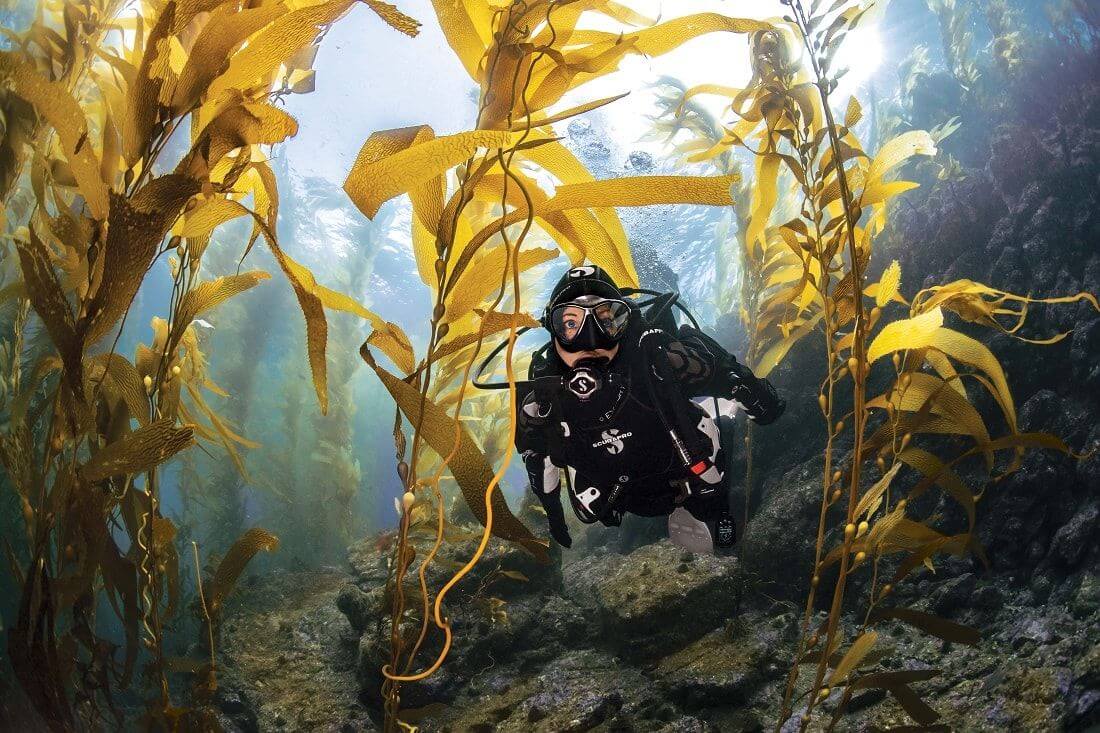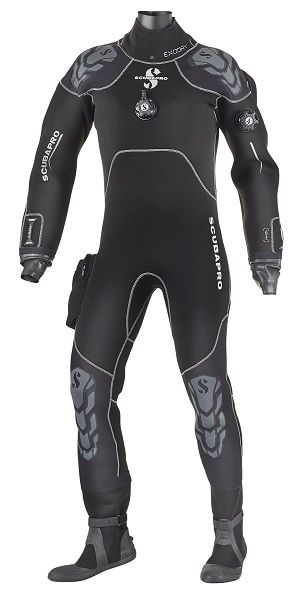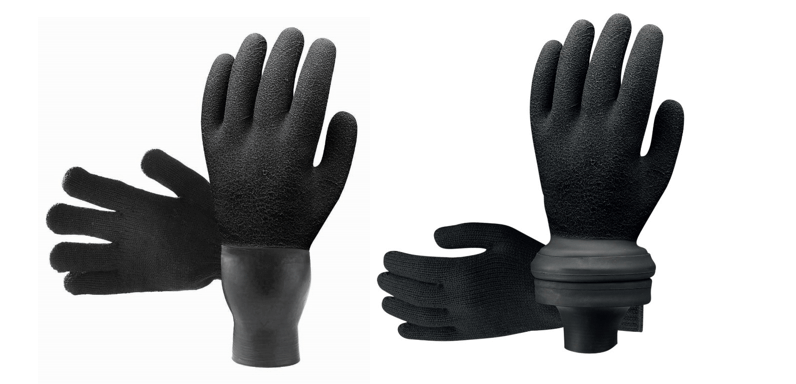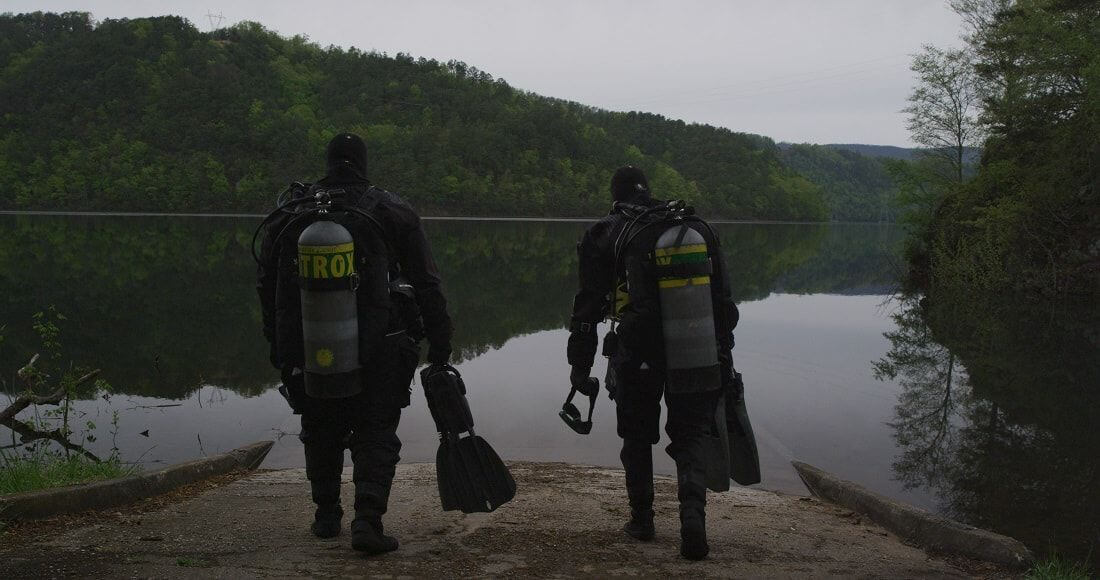Choosing the Best Drysuit for You
Diving with a drysuit is a whole new dive experience compared to diving in a wetsuit. It is a different feeling being submerged in water, your body remaining dry. Drysuits offer many advantages, such as: exposure protection from the sun, as well as elements in the water, and drysuits can also be utilized as a redundant buoyancy device for added safety. If you've never attempted drysuit diving before, then this will be a great introduction to helping you choose your first suit. If you're an avid diver, then there should be some nuggets in here to help improve your drysuit game.

Finding the Best Drysuit for You
Making the change from wetsuits to drysuits is a big step. Many people convert due to their regular diving in cold water (or being cold natured), or because they perform lots of dives with long exposure times. Determining the suit that is best for you is the first step to ensuring that your transition to drysuit diving is a smooth one. Choosing a bad suit can ruin the entire sport of drysuit diving.
When choosing a drysuit, you should consider the following:
- The type of diving you do
- What amount of thermal protection you need
- Personal preference
- Cost
- Material
While the first four are pretty self-explanatory, the last one – material – may need a little more explanation. If you are going to be traveling with your drysuit, a trilaminate version may be the easiest because they are lighter and easily transportable. If you are looking for a suit that provides thermal protection and is more form-fitting, then you might prefer a neoprene suit. These are two of the top materials that drysuits are made of and that SCUBAPRO offers.
Neoprene Drysuits
Neoprene suits are beneficial in that they provide thermal protection, whereas with others, you wear additional undergarments. The neoprene suits are more form fitted, which require less air to be used in the suit and offer the diver a more streamlined suit. Neoprene suits are economical in the sense that they are typically less expensive, and eliminate the need to buy undergarments as well.
SCUBAPRO offers two neoprene drysuits, the Exodry and the Everdry 4. Both come in men's and women's sizing.
The Exodry offers a unique approach to drysuit design by fusing 4mm high-density neoprene with latex wrist and neck seals. This hybrid design is extremely effective, delivering minimal inherent buoyancy, maximum range of motion and an excellent sealing system. The Exodry is a smart choice for all types of diving and can be used with or without an undersuit.

The Everdry 4 offers the streamlined fit, comfort and flexibility of a wetsuit, with the thermal properties and water-tightness of a drysuit. Equipped with smooth-skin, fold-under neoprene neck seal, and ultra-smooth wrist seals, the Everdry provides comfortable, watering tight sealing surfaces. Known for its comfort and extended wear, the Everdry 4 fits like a glove, offers excellent range of motion, and most importantly, keeps body heat in and cold water out.
Trilaminate Drysuit
Trilaminate suits are some of the most lightweight suits on the market. Trilaminate suits are also one of the strongest suits offered. Build with a trilaminate material, these suits are more resistant to deterioration, are fast drying, and easy to repair. Trilaminate suits are designed to be worn with thermal undergarments. You can wear as many or as few thermal layers as you prefer, making it a good choice for a diver that does both cold and warm water diving.
Our choice in trilaminate suits is the Evertech Dry Breathable Drysuit. It is a premium trilaminate drysuit designed for avid divers and loaded with features. Built with a breathable fabric blend, this suit is comfortable both above and below the surface. Stitched and waterproof taped seams provide extra protection from the water. Additionally, a front entry diagonal zipper, and Si-Tech ring seal system for wrists and neck allows you to easily change seals. This suit is both easy to wear and easy to maintain. You will also find a telescoping torso, top, crotch strap and bungee system within the waist to tailor the suit to your body shape.
Accessorizing the Drysuit Diving Experience
When it comes to accessorizing your drysuit, many additions are built into the suit – from the padding to pockets. The small details are important details to consider when choosing a drysuit. Pockets are very useful for storage of equipment, and every SCUBAPRO suit comes with at least one large utility pocket. Each pocket houses a D-ring and water draining grommets. These items might be helpful to store a spare mask, reels, wet notes, or surface marker buoys.
Some additional features you may find on your SCUBAPRO suit are attached boots or socks, removable blue suspenders to hold your suit in place, heavy duty knee pads, and I-safe straps to secure your wrist computers. Each suit always comes with an anatomically shaped hood, repair kits, zipper wax and a versatile carry bag that also doubles as a changing mat.
Drysuit Gloves
When diving in cold water, your hands are typically what get cold first, and can potentially end your dive due to the discomfort. This is why dry gloves are a great addition to your drysuit if you commonly perform dives in frigid water. Dry gloves are designed to allow air inside, making a huge difference in regulating temperature, much like a drysuit. SCUBAPRO offers two types of dry gloves, the Easydry Pro, Easy Don Dive Glove and Slaggo Oberon Ring System.

Both gloves are manufactured from high-quality, vulcanized latex which gives them high elasticity, plus makes the gloves very resistant to punctures and tears. The elastic latex cuff seal ensures that the glove is totally waterproof, while still providing access for air to enter the glove. The textured surface enables the wearer to maintain a non-slip grip on instruments, valves or regulator. They come with an inner glove for added thermal protection.
Wetsuit Gloves
Where as many drysuit divers chose to dive with dry gloves, many others prefer neoprene gloves. Neoprene gloves still allow your hands to get wet, while the neoprene foam offers thermal protection. Many divers prefer wet gloves over dry as they vary in thickness and can offer better dexterity. SCUBAPRO carries dive gloves from 1.5mm up to 5mm, for all your diving needs.
What to Wear Under Your Drysuit
One of the beauties of diving in a drysuit is being able to control the amount of thermal protection you want. As previously stated, in a trilaminate, suit you have the room to layer as much or as little undergarments as desired. With the neoprene suits you are more limited by space, however the suit itself provides warmth. Our preferred undergarment is the SCUBAPRO K2 series.
The K2 is our undergarment of choice for drysuit diving. This thermal wear keeps you warm with a low profile two-piece insulation system. You can wear one or both pieces under your drysuit, at depth, for total comfort and warmth. The garments are breathable and windproof, making them a perfect surface interval ensemble while on the surface. Designed with neoprene wrist and ankle cuffs, with thumb loops and stirrups, they'll both enhance warmth and prevent ride-up when climbing into your drysuit. The K2 is also one of few undergarments that are washable; however, we recommend you air dry them to not deteriorate the materials.

Drysuit Maintenance
After making the investment in a drysuit you want to protect that investment so you can use it for the rest of your drysuit diving days. It is important to wash your drysuit in and out, after every dive. You will also want to keep your zippers waxed. Store in a dark place away from UV light with the zipper open.
Education on Drysuit Diving
Switching to a drysuit, isn't the same as switching different kind of wetsuits. There are added risks involved and additional training is necessary. We recommend taking a Drysuit Diver Course from your local dive shop to safely enjoy all the benefits of diving dry. Find the nearest SCUBAPRO retailer here: https://www.scubapro.com/where-to-buy.







